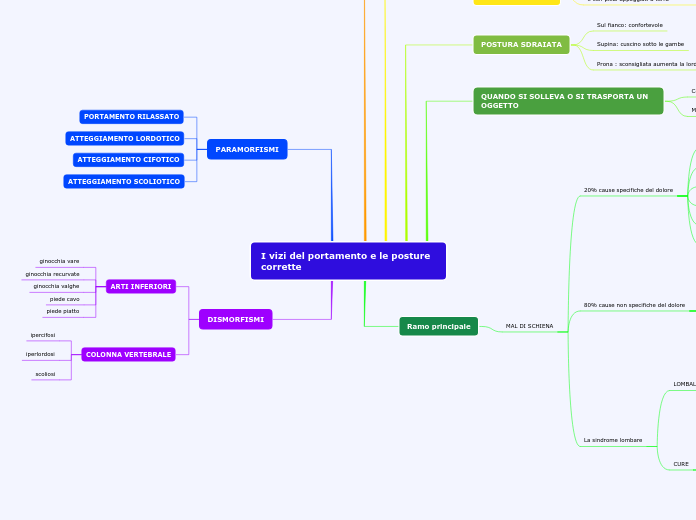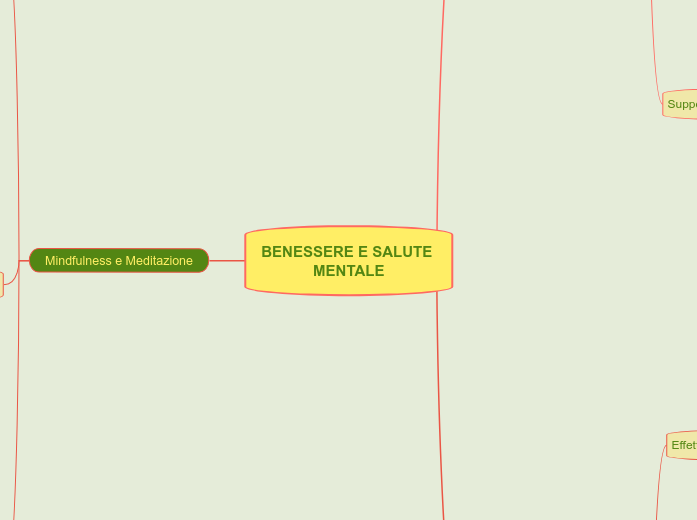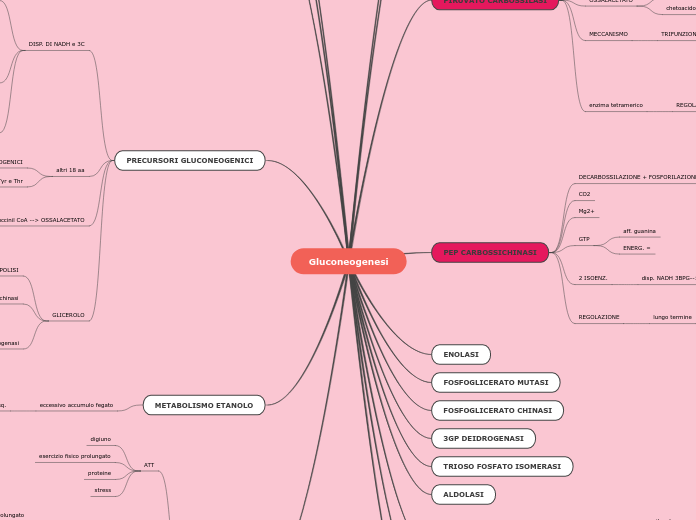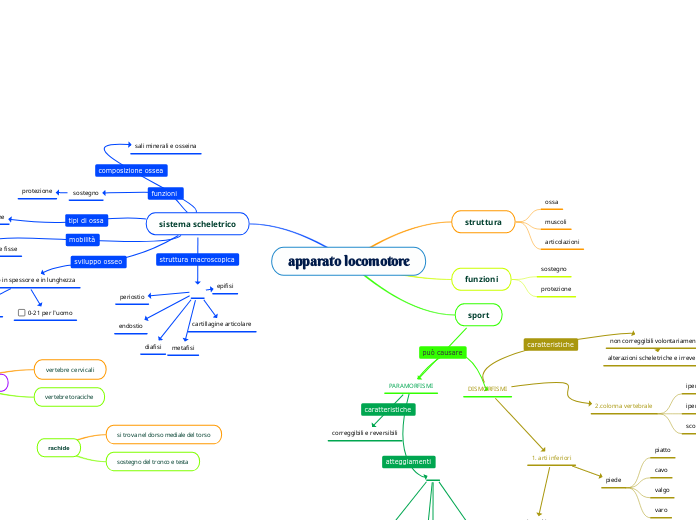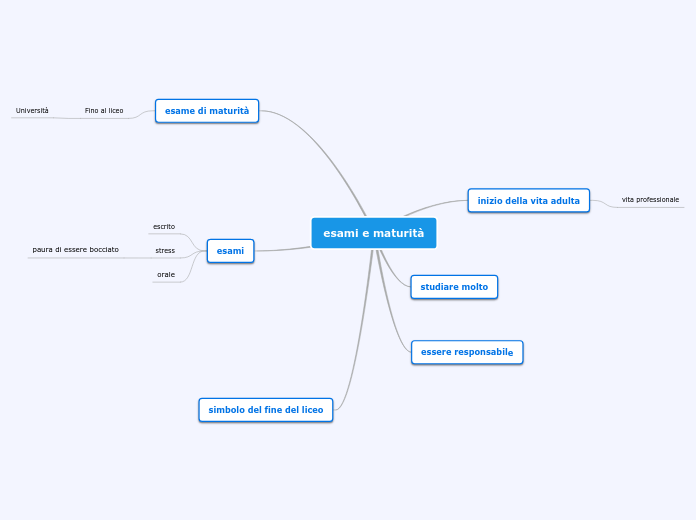I vizi del portamento e le posture corrette
In linguistics, syntax is the set of rules, principles, and processes that govern the structure of sentences in a given language, usually including word order.
DISMORFISMI
A compound sentence is a sentence that has at least two independent clauses joined by a comma, semicolon or conjunction. An independent clause is a clause that has a subject and verb and forms a complete thought.
COLONNA VERTEBRALE
Create your own compound sentences, using the coordinators above.
scoliosi
iperlordosi
ipercifosi
ARTI INFERIORI
When independent clauses are joined with coordinators (also called coordinating conjunctions), commas and semicolons, they do more than just join the clauses. They add meaning and flow to your writing.
piede piatto
piede cavo
ginocchia valghe
ginocchia recurvate
ginocchia vare
PARAMORFISMI
A complex sentence is a sentence that contains an independent clause and one or more dependent clauses.
An independent clause can stand alone as a sentence, but a dependent clause even though it has a subject and a verb cannot stand alone.
ATTEGGIAMENTO SCOLIOTICO
An adverbial clause is a group of two or more words that function as an adverb in a sentence.
ATTEGGIAMENTO CIFOTICO
An appositive clause follows another noun or noun phrase in apposition to it; that is, it provides information that further identifies or defines it.
ATTEGGIAMENTO LORDOTICO
A predicative clause may be introduced by conjunctions - that, whether, whether... or, as, as if, as though, because, lest, the way - or connectives.
The latter may be conjunctive pronouns - who, whoever, what, whatever, which - or conjunctive adverbs - where, wherever, when, whenever, how, why.
PORTAMENTO RILASSATO
The object clause is a phrase on which a verb performs an action. It falls at the end of a sentence, and is governed by a verb or a preposition.
Ramo principale
MAL DI SCHIENA
La sindrome lombare
CURE
Back school(scuola della schiena)
insegna a prevenire i disturbi vertbrali
Cinesiterapia
miglioramento del tono muscolare
mobilitazione delle articolazioni
presa di coscienza
Riposo e antidolorifici
LOMBALGIA ACUTA
Lombosciatalgia
Lombalgia cronica
80% cause non specifiche del dolore
CATTIVE OCCLUSIONI DENTALI
FUMO
SOVRAPPESO
STRESS
POSTURE SCORRETTE
20% cause specifiche del dolore
OSTEOPOROSI
MORBO DI SCHEURMANN
SPONDILOLISTESI
ARTROSI VERTEBRALE
ERNIA DEL DISCO
DISCOPATIE
QUANDO SI SOLLEVA O SI TRASPORTA UN OGGETTO
Mantenere il busto eretto e piegare le gambe
Contrarre gli addominali
POSTURA SDRAIATA
Prona : sconsigliata aumenta la lordosi lombare
Supina: cuscino sotto le gambe
Sul fianco: confortevole
POSTURA SEDUTA
Sedersi su sedia con schienale e braccioli regolabili e girevole e con piedi appoggiati a terra
POSTURA ERETTA
Mantenere l'allineamento della colonna immaginando una linea virtuale passante per: orecchio,spalla,anca,ginocchio,palmo e mani,addome e glutei contratti
